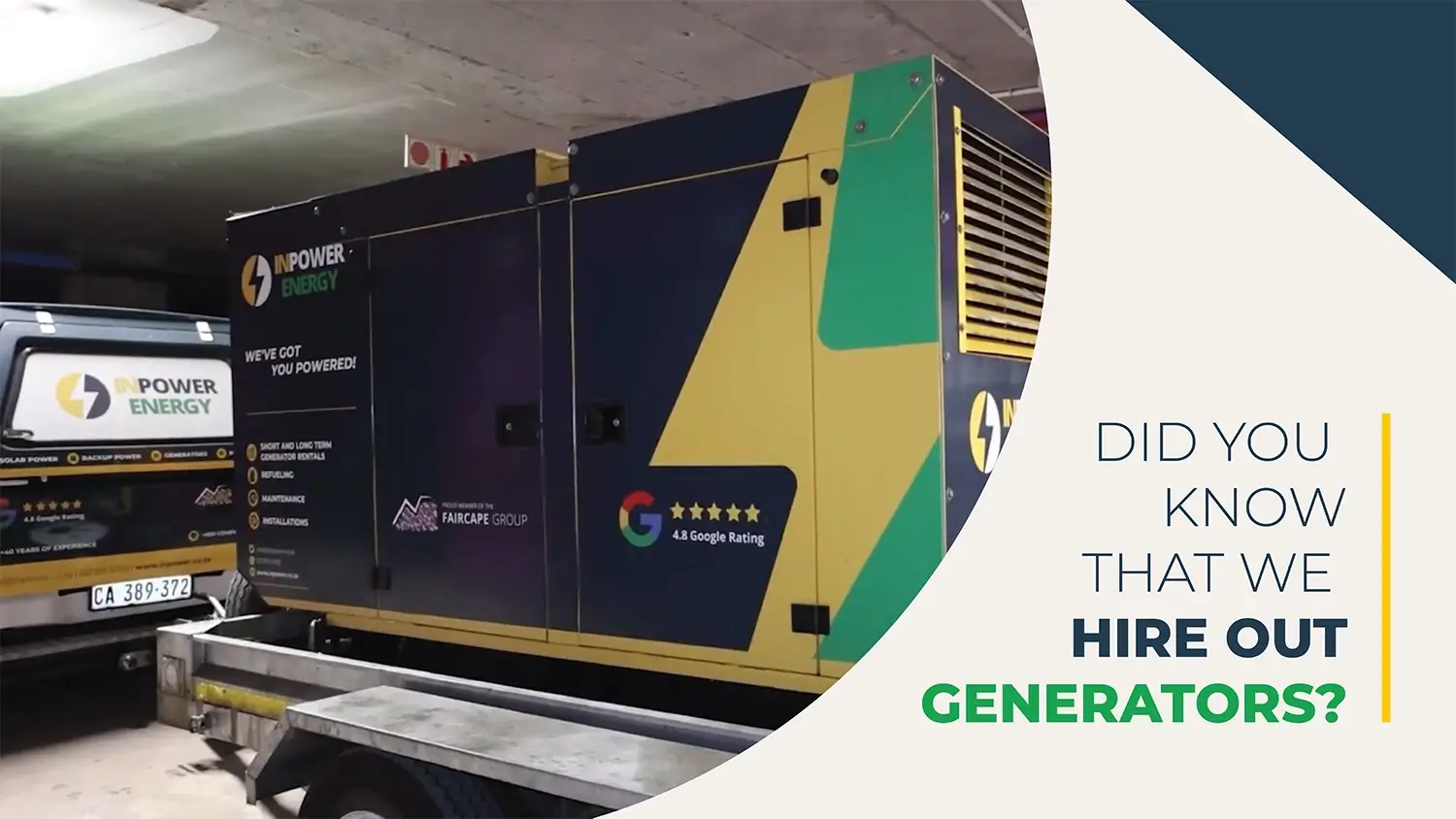Inverter vs Generator. The question plaguing most South Africans during the current energy crisis. Ultimately, the choice between an inverter and a generator depends on specific needs, power requirements, and applications. Inverters are better suited to residential use and activities because they prioritise clean power and are not noise polluters. Alternatively, generators work better for larger-scale power needs, particularly for businesses that require high power output and continuous operation during outages.
Inverter for your home
With the ongoing Eskom woes, having a reliable backup power source is essential. Experiencing extended periods of power outages can disrupt schedules and create major inconveniences. For your home, an inverter is the best backup power solution. They are energy efficient, environmentally friendly, portable, versatile, and silent.
Inverters convert power from a direct current (DC) source such as solar panels or lithium-ion batteries into alternating current (AC). This electricity can operate AC equipment designed for main electrical grid operation, i.e., computers, televisions, and lights. The batteries in an inverter system are charged using mains electricity or solar power. Unless you are using solar power, the running cost of an inverter is linked to the price of electricity; lithium-ion batteries also don’t require much power to be charged.
Portable inverters are highly versatile. Their lightweight and compact design make them easy to move around, which can be helpful when moving homes. Their stable, clean power is beneficial for safeguarding sensitive electronic devices like computers, televisions, smartphones. Additionally, inverters operate quietly making them ideal in a residential area.
Generator for your business
Unlike inverters, generators are built for large-scale power generation, making them ideal for businesses. They are a reliable choice for powering heavy-duty equipment, machinery, and various business operations. The initial cost is typically lower than that of inverters and more affordable if the electricity demand is higher.
Eskom’s extended periods of loadshedding have caused production losses in several businesses. The introduction of Stage 6 loadshedding has seen even more small businesses close their doors. The extended run time of a generator can accommodate advanced stages of loadshedding, offering production continuity. Additionally, generators are a more cost-effective solution compared to using multiple inverters. Their ability to supply substantial power in a single unit also reduces the overall equipment and maintenance costs for the business.
A benefit of a generator for your business is that they come in various sizes and types that can run on different fuel sources like petrol and diesel. This versatility allows businesses to choose the most suitable option based on fuel availability, cost, and specific needs. InPower Generators offers a convenient, reliable and cost-effective refuelling service.
Refuel your generator!
Both inverters and generators are indispensable in providing the power needed to navigate through the challenges of loadshedding. The needs of the home or businesses will determine the choice of inverter for home and generator for business.
Inverters are ideal for homeowners seeking a peaceful and reliable backup power, while generators are the go-to option for businesses requiring high power capacity and continuous operation during outages. InPower’s inverter solutions, ranging from 3kW to 12kW systems and generator solutions 30kVA to 1250kVA, are the ideal backup power solution!





